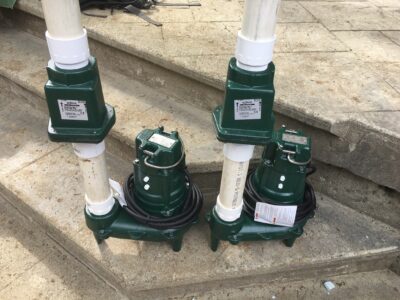How to Keep Your Residential Pump System Running Like it Should
Picture yourself rocking on a lazy chair on a sunny day in your yard. There’s a sugary drink in your hand, the sun is shining, and the sprinkler is similarly rocking back and forth across your lawn, keepin’ it green so you can keep up with the Jones’s.
And of course, you’re using water you harvested during the moist winter months of February, March, and all the way into June this year.
Yep, you’ve got everything covered. Not a care in the world.
Peace of mind is a cool thing, hey?
Which makes it all the more important when a black cloud rolls in from the coast and a torrential downpour flares up and threatens to demolish that sense of calm in an instant. Think of your home’s drainage system. Will it be able to handle the storm? Once the rain itself subsides and fluid starts flowing down the slopes and rocks of the island, will your home be ready for the onslaught of hundreds, or even thousands, of gallons of water?
Let’s find out.
1. Does Your System Have a Backup Pump?
We’ve been preaching the value of backup pumps to customers since long before the Perimeter Drainage days even began. Some people tell us its strange to reveal the fact our pumps might fail, but it’s not just our pumps. It’s every pump, everywhere. There’s just no guarantee. Truthfully, the two pump system should just be considered one complete unit. If the first fails, the second will kick in, saving your home and your sanity.
2. Have You Programmed Your Duplex Panels?
Ok, first you need to have duplex panels, then you need to program them. Duplex panels are great because they keep your home cycling between your two pumps. Part of the reason we see pumps fail is simply because they’re overworked. It happens in North Vancouver and on Vancouver Island. So, a duplex panel lets you automatically cycle between the two pumps, reducing wear and tear and extending the life of your system. You can set your house alarm to the alarm card in the panel, so during the times you are away from your house, the duplex panel will set a signal to the house alarm when the override – high level alarm goes off. This could either mean excessive flows, or a pump that isn’t functioning like it should.
3. Do You Have an Emergency Generator?
The curb appeal of those beautiful island homes might stay intact on the outside, but the value of the inside of your home can switch mighty quick if a storm strikes and nothing is turned on. Often it’s nothing people can control anyways – say a huge tree takes out a vital power line that’s fuelling your home. Then what? If nothing has power, then nothing works. You can get different sizes of generators to keep small amounts of energy flowing so your pumps keep working, and you can get more powerful versions to keep banks of lights and fridges running in the event of a power failure.
Look, sometimes it feels like we’re predicting the apocalypse every couple weeks here on the blog. You don’t have to spend a lot, but in the grand scheme of things, the money you spend now will save you in the longrun.
And in the meantime, it will make those drinks on the patio a lot more relaxing.


